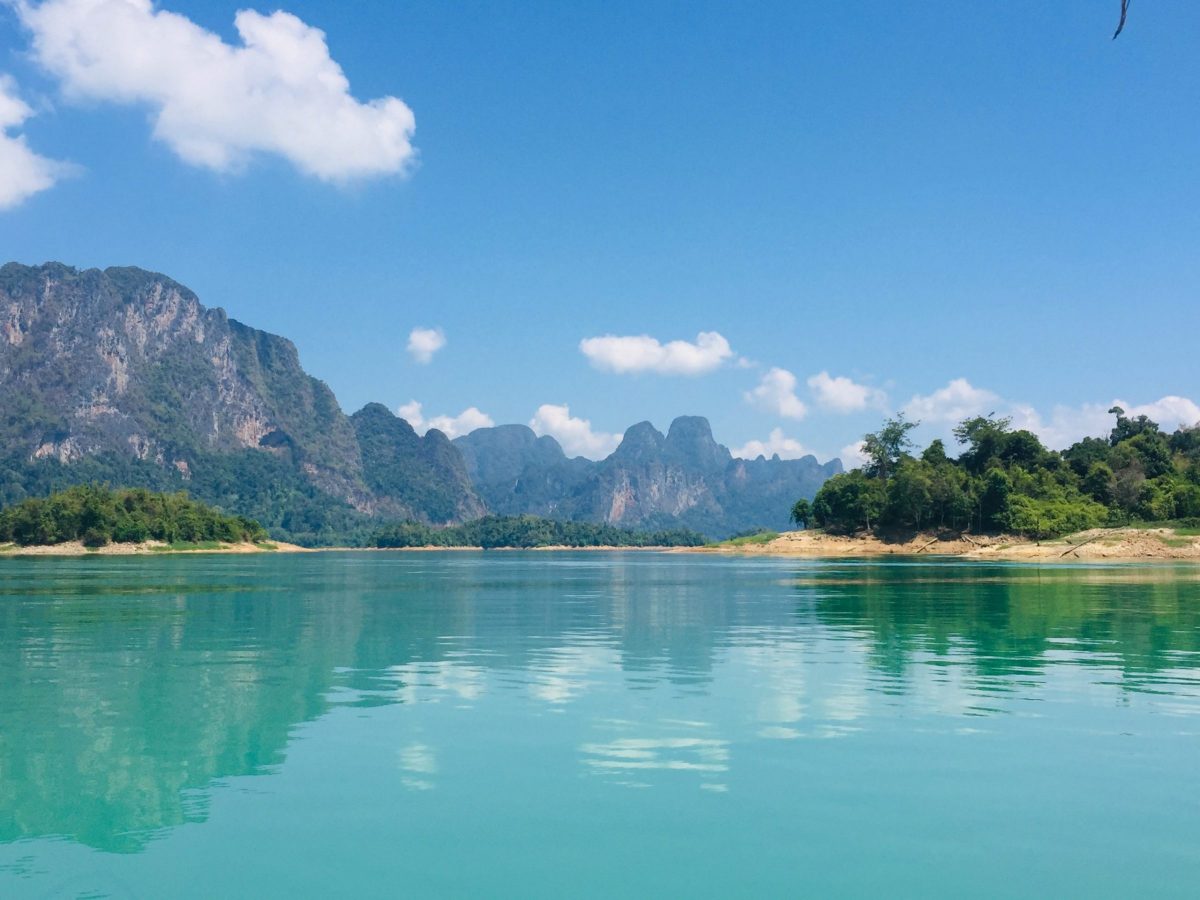- Introduction
- General Tips
- Best time of year to go
- Costs
- How to get around
- National Holidays and Celebrations
- Useful Guides
- Thailand Highlights
Introduction
In the past 15 years Thailand has changed a lot. But it remains my favourite place in the world. One of the reasons the country is such a popular destination is that there really is something for everyone. Whether you want to spend your time relaxing on a beach, trekking through the jungle, partying all night or taking in the culture, there is a place for you in Thailand.
If you’re thinking of travelling around Thailand, obviously one way is to speak with a travel agency who can organise your trip for you. But if you have the time, I really recommend planning and booking it yourself. It will be a lot cheaper and you will be able to tailor the trip exactly how you want it. Hopefully, this guide will help you do just that. I only cover the places that I really love, as I want to offer first hand advice.
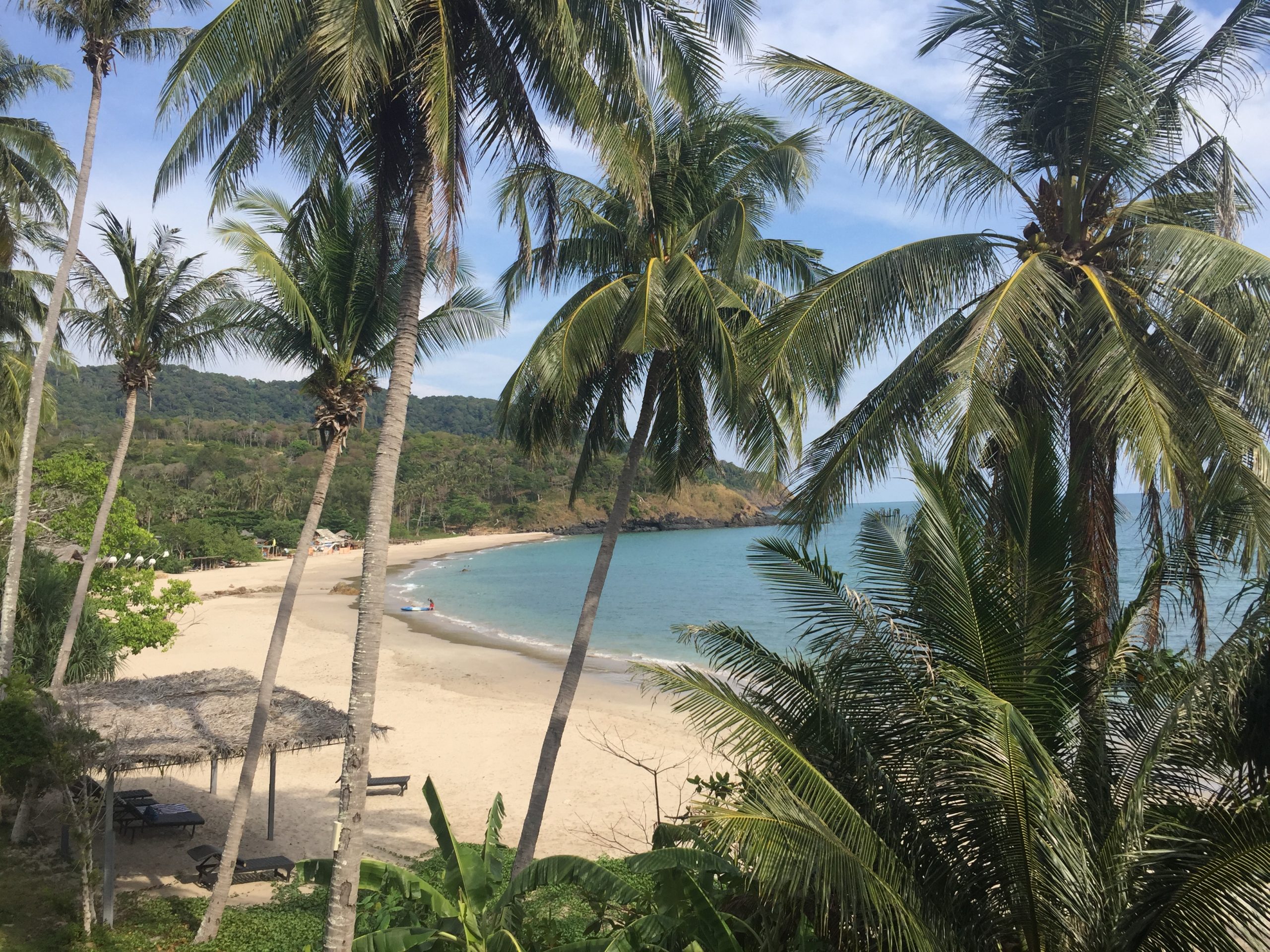
Initially, when planning your trip, my best advice is to first establish what time of year you are able to go, how long you are able to stay, and roughly what your budget will be. These three things will really help you begin to form an itinerary. Once you have decided on those points, pick out two or three places or attractions that you definitely want to see and map a route between them. Once you have that basic plan, you can start to really build on it and add in the stops along the way.
General Tips For Thailand
Best time of year to go
Thailand is a huge country and the seasons vary depending on the region. However, as a general rule, there are three main seasons: hot, cool, and wet.
Hot season tends to run from Feb/Mar to May/June. Temperatures can often exceed 40C, which can be difficult for some. At the peak of the season, in mid-april, the country comes together to celebrate Songkran, which takes the form of a nationwide water fight! It’s great fun and very welcome in the heat. Rain becomes more frequent as the season progresses, though it rarely rains for long.
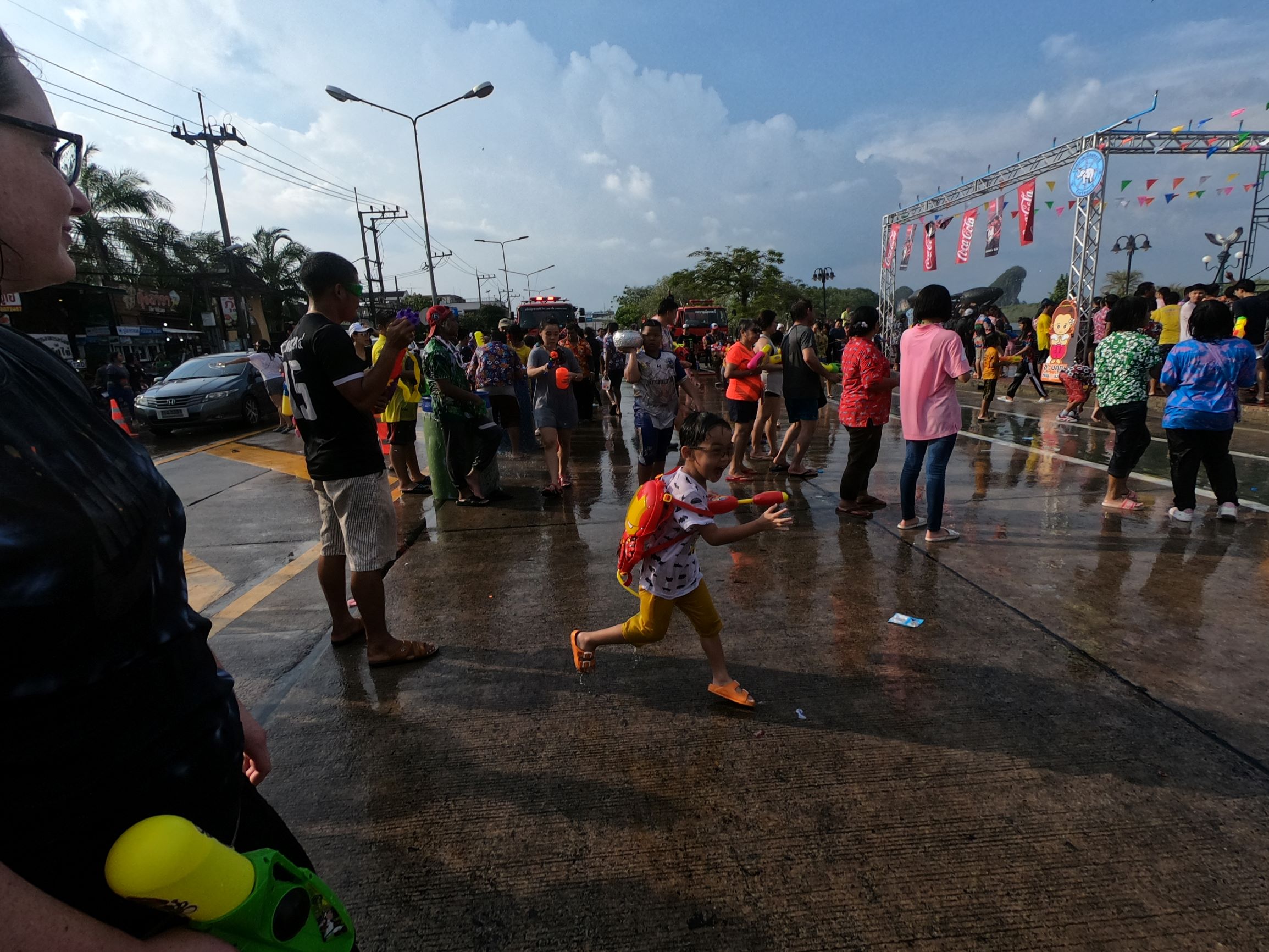
By June, the rain has usually begun to get more frequent and prolonged. This sees the start of the wet season, which runs from May/June to Oct/Nov. Sometimes the rain can be torrential and seemingly never-ending. But more often than not there will usually just be a daily downpour that is gone as quickly as it came. This can be inconvenient. However, there are some excellent bargains to be had in this season and there tends to be far less tourists. Also, this is when the jungles really come to life! So, if you can handle a bit of rain, this can be a great time to visit.
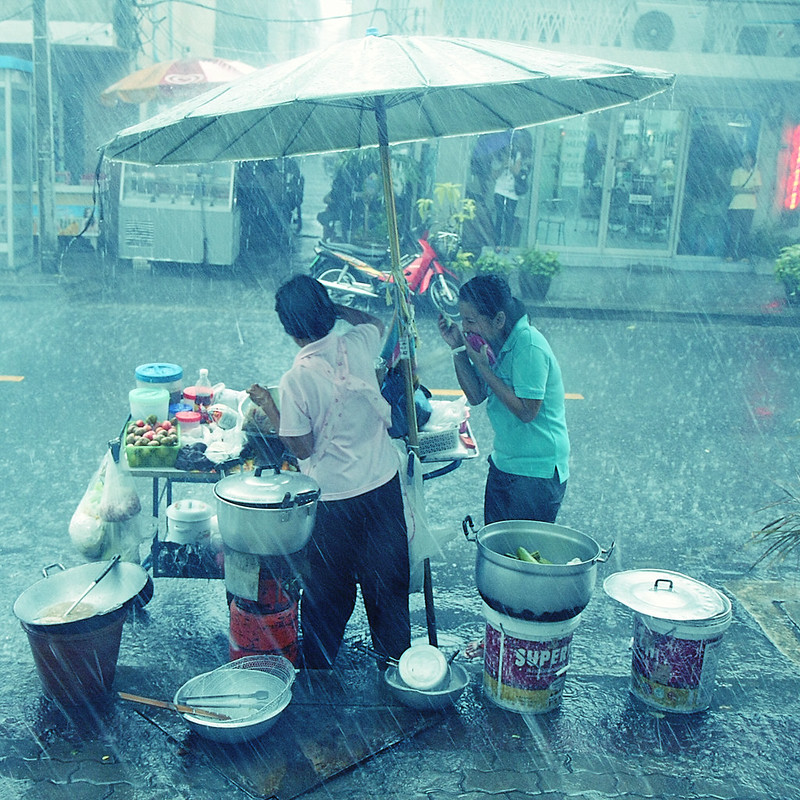
Finally, by November, the rains begin to lessen. This marks the start of the cool season, which runs until Feb/Mar. All things considered, this is probably the best time to visit. The temperature, whilst still usually well in the high 20s, is not quite as punishing as during the hot season and you can go weeks without seeing a drop of rain. The downside is that this means it is also high season, tourism-wise, so everywhere tends to be a bit busier and more expensive.
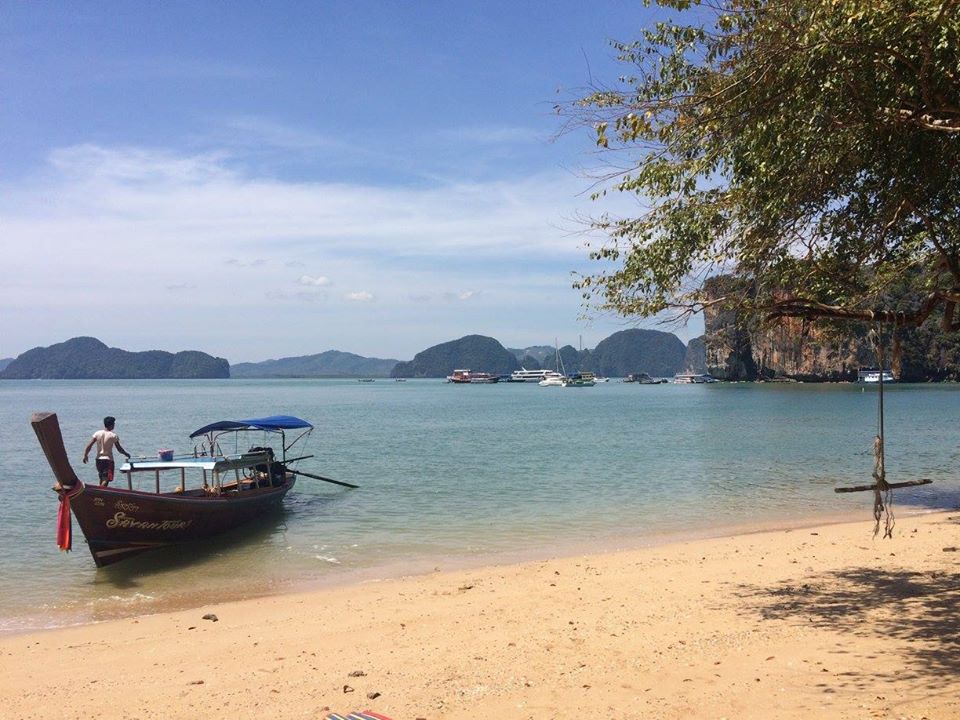
Overall, it comes down to what works best for you. Personally, my favourite time to go is early in the year, around January, because I like the slightly cooler temperature and the lack of rain. But if you like it super hot then March or April is probably best. Whereas, if you want to avoid the crowds, grab a few bargains and see nature in all its glory then do consider the wet season.
This is a very rough guide to the changing seasons, and there are variations between the regions. For a more in-depth guide, this website offers a nice overview of the various regions: https://www.selectiveasia.com/thailand-holidays/weather
Costs
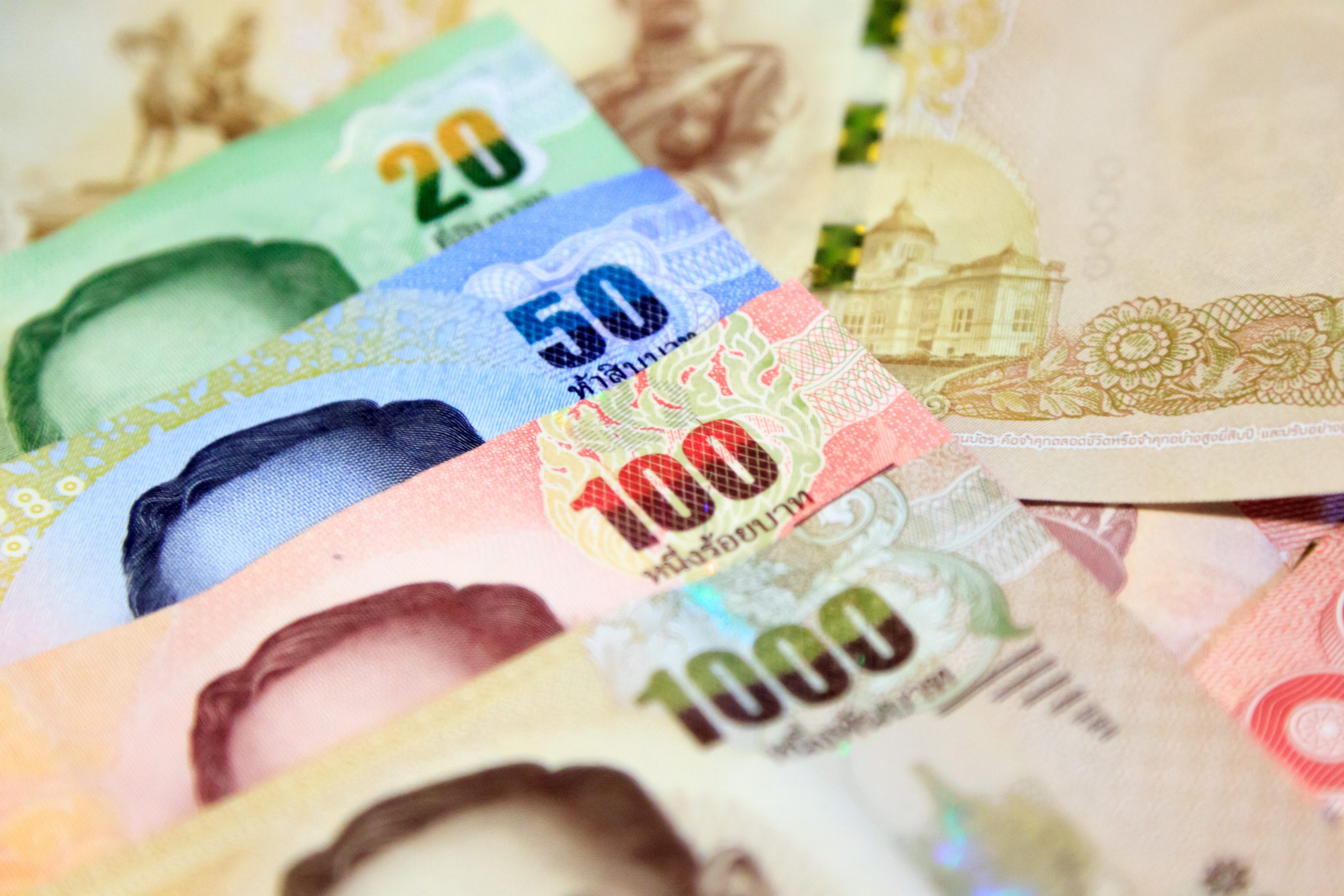
Accommodation
The price of a bed varies greatly in Thailand. Typically, for a double room in a decent, mid-range hotel, you’re looking at somewhere between 1000-2000 Baht per night (£25-50). You will find plenty of places that are less than 1000B a night, wherever you are, but you will have to compromise on certain luxuries (e.g., smaller room, no air con, no swimming pool, etc).
If you’re on a more back-packer budget, there are hundreds of hostels to choose from in most big cities that tend to be as cheap as 100B a night (£2.50). It’s also worth considering AirBnB, which has grown in Thailand over the past couple of years.
However, as elsewhere, Booking.com is your best tool for accommodation. Do your research, read the reviews, cross reference with other sites (tripadvisor, etc) and it wont take you long to find the perfect place.
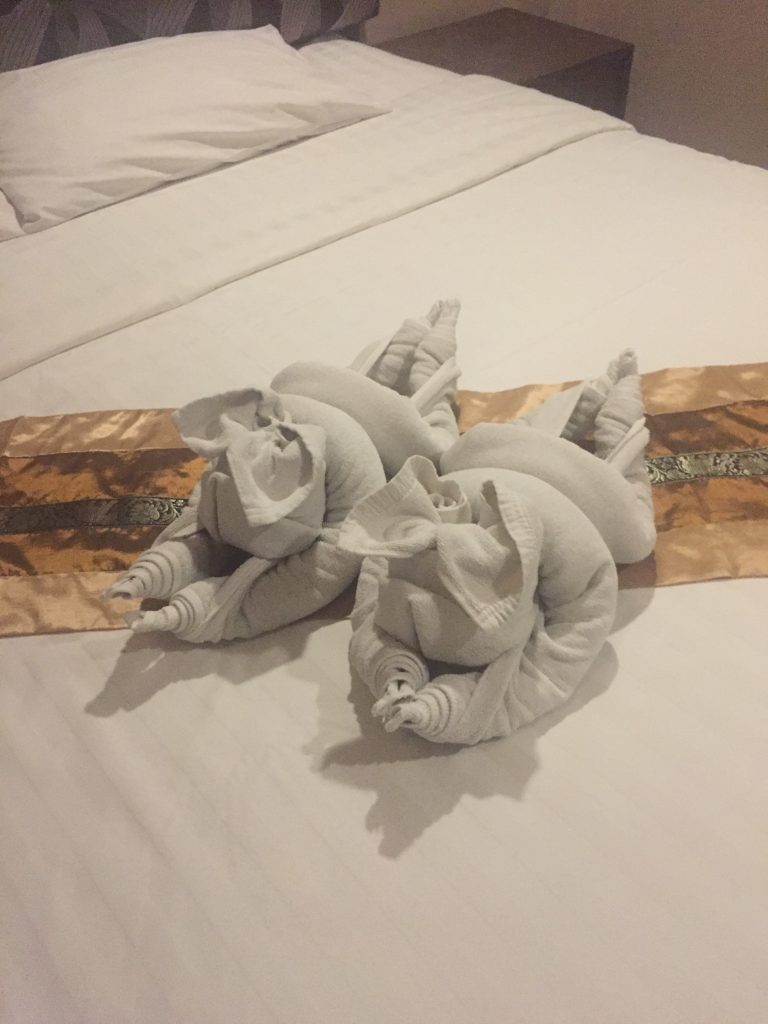
Food
You can eat really well for cheap in Thailand. The street food can be amazing and you can easily get by on 150-200B a day (£4-5) this way. For example, a whole, fresh mango or pineapple should cost you 20B (50p). Something like som tam (papaya salad) might cost around 40-50B (£1). Whilst something a bit more substantial like pad krapao (spicy basil stir-fry with chicken/pork and rice) might set you back 60-70B (£1.50). This really is the cheapest and often the best way to eat around Thailand.
But, of course, there are so many excellent restaurants to choose from as well. These will vary in price greatly. At a standard, decent quality restaurant, expect to pay around 100-200B (£2.50 – £5) for a main course. If the place is geared more towards tourists than locals, or if it is non-Thai food, then it is more likely to be around 200-400B (£5 – £10).
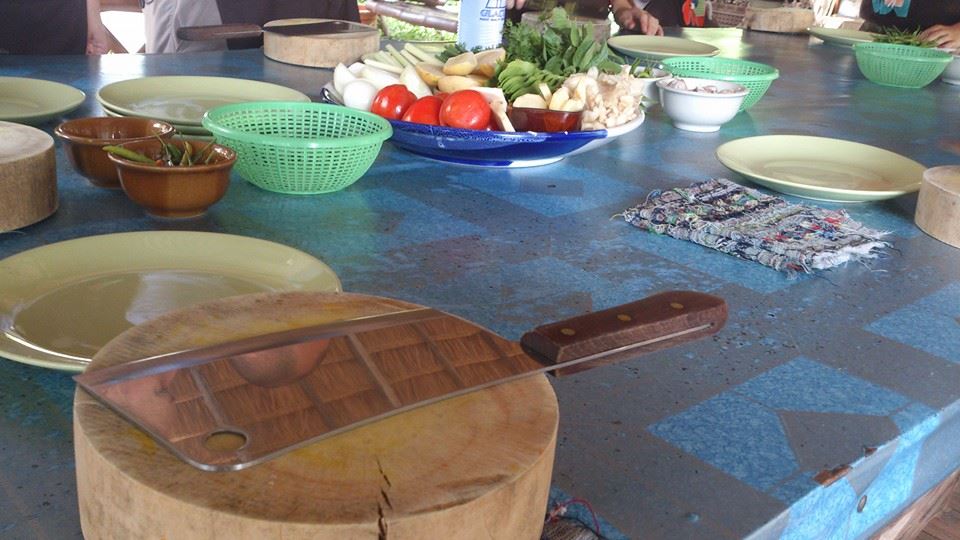
Drinks
In terms of beer, three brands dominate: Chang, Singha, and Leo. Singha tends to be most expensive and Leo the cheapest, though there isn’t much difference in price these days. In bars, small bottles will cost around 60-100B (£1.50 – £2.50), depending on where you’re drinking and whether it’s happy hour.
Given the current exchange rate, and the fact that small bottles can go down far too quickly in the heat, the cost of a night out can really rack up fast. For a cheaper alternative you can buy bottles in any 7/11 for around 40B (£1).
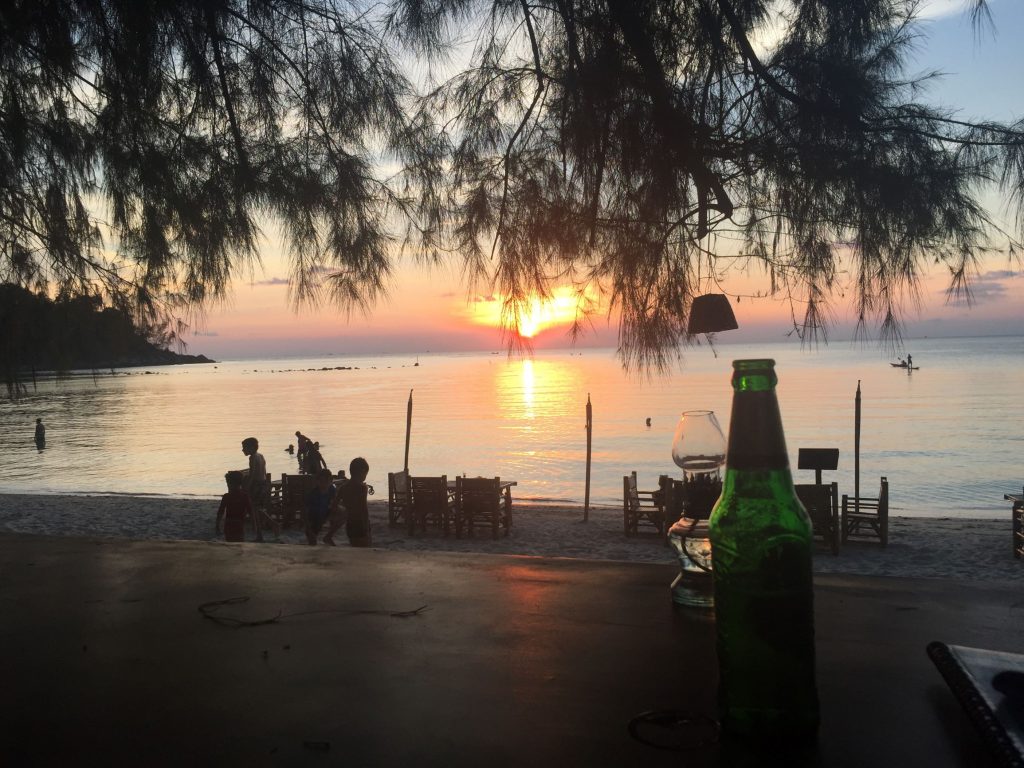
The craft beer scene has hit bigger cities, though these places can be incredibly expensive (think upwards of £8 a pint). If spirits are more your thing, you’ll be paying around 80-120B (£2-3) for a rum and coke, etc. Cocktails will usually be at least 120B (£3) but can be considerably more at fancier bars.
Overall, if you like having a drink in the evening on holiday, this is definitely something to factor into your budget for Thailand. Two of you, spending a couple of hours in a bar, could easily cost £25 or more. So if that’s your thing, plan ahead.
How to get around

In Bangkok, public transport for most of the city is excellent. There is the BTS (sky train) and the MRT (underground). Both are the fastest, most efficient and cheapest way to travel around. It takes a bit of getting used to at first but, once you’ve got the hang of it, it makes trips around the city so much easier (see the guide in the links below).
For example, getting from Suvarnabhumi Airport to downtown Bangkok costs 80B (£2) and takes 30 mins. In a taxi this journey would cost around 400B (£10) and can take forever if you hit traffic.
Grab is also widely available in Thailand. Essentially, it works the same as Uber. I would recommend getting the app and signing up before you go as it really is a handy way to get about. It’s not necessarily cheaper than a regular taxi, but it does make it easier to choose where you want to go, make sure you’re going the right way and avoid any prices changes when you get there, as the price is agreed in advance.
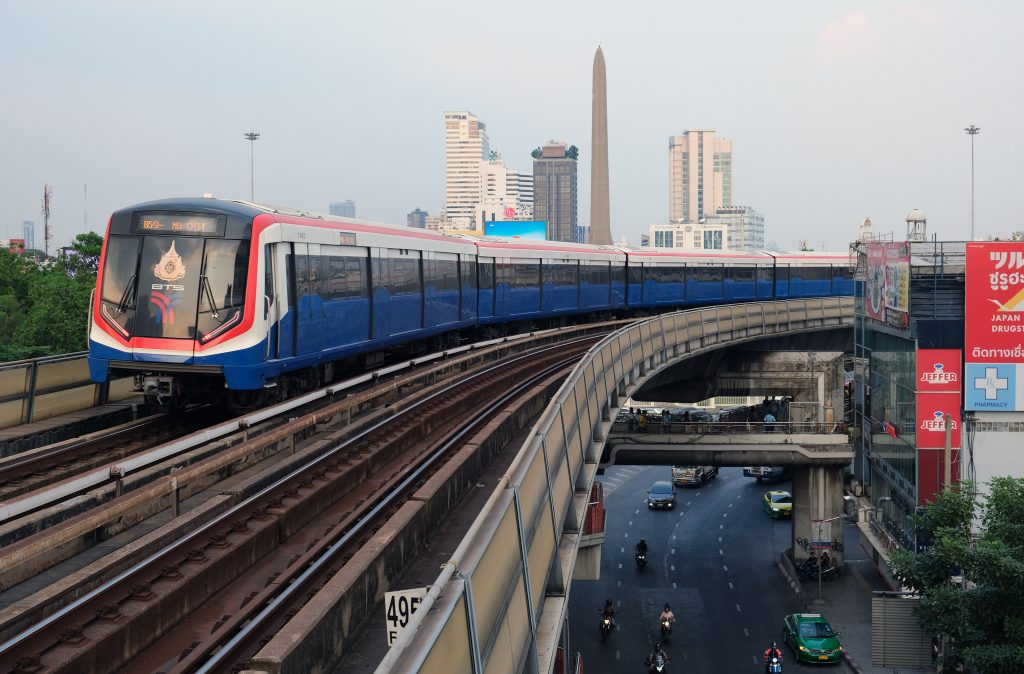
When moving between cities, you have a number of options. The quickest way is to fly of course, but this is also the most expensive. Usually, for a 1-2 hour flight you can expect to pay around £60-100. Though its worth keeping an eye on this and booking in advance as you can often find a real bargain (Sky Scanner is useful).
There is a good train network in Thailand, which tends to be quite a bit cheaper than flying, but is often the slowest way to travel. For example, a seat/bed on the sleeper train from Bangkok to Chiang Mai takes around 13 hours and will set you back about 1000B (£25).
Finally, you can cover most long distances by bus or coach. This is the cheapest way. Whilst perhaps not quite as spacious as the train, many now come with pretty comfortable, reclining seats and it will usually be faster. An overnight bus from Bangkok to Chiang Mai takes about 9 hours and should cost between 500-800 Baht (£12-20).
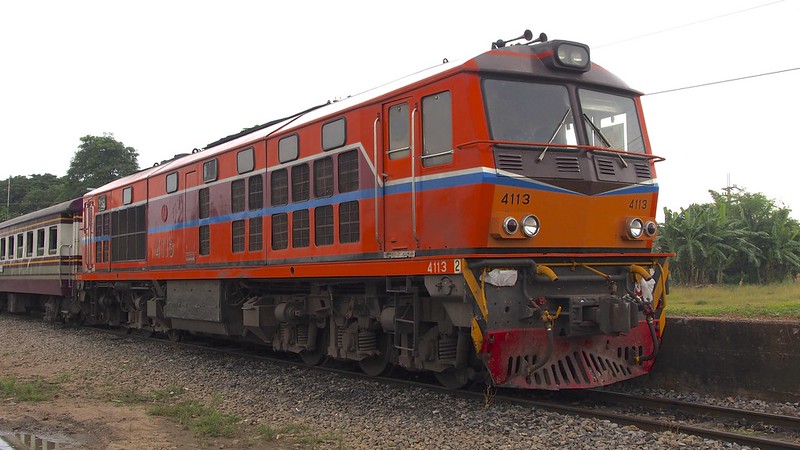
National Holidays and Celebrations
There are many national holidays celebrated throughout the year in Thailand. Most commemorate events in the Buddhist calendar, or are associated with the Royal family. Some of the celebrations are really fun to join in with! However, they do often mean that restaurants and bars will be closed and they may make it difficult to travel around so it’s good to know when they are.
- February (full moon): Magha Puja – celebrating the teachings of Buddha, often involving candlelight processions to the temple.
- April 6th: Chakri Memorial Day – Royal celebration commemorating the start of the Chakri dynasty and establishment of Bangkok as the capital city.
- April 13-15th: Songkran Festival – Thai New Year and one of the biggest events of the year. On the main day, the whole country engages in a mass water fight!

- May: Phuetcha Mongkhon – The Royal Ploughing Festival, or Farmer’s Day, marks the beginning of the rice growing season.
- May (full moon): Vesak – celebrates the birthday of Buddha.
- June 3rd: Queen Suthida’s Birthday.
- July 28th: King’s Birthday.
- July (full moon): Asalha Puja – Holy day commemorating Buddha’s first sermon.
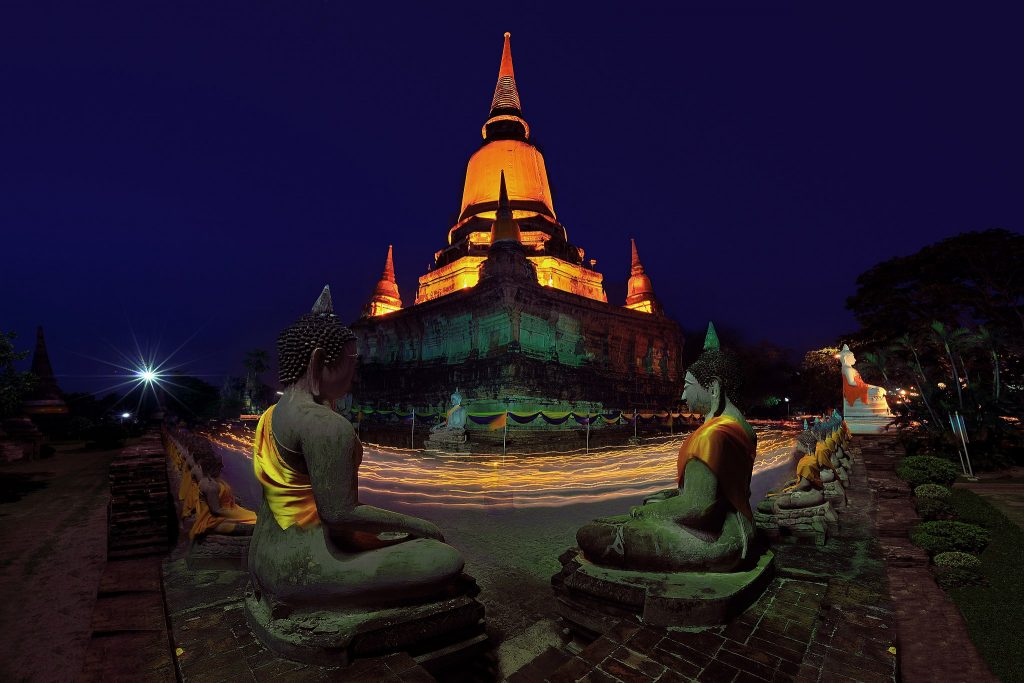
- July (first waning moon): Beginning of Vassa – often referred to as ‘Buddhist lent’, many Thais give something up for Vassa.
- August 12th: The Queen Mother’s Birthday.
- October 13th: King Bhumibol Adulyadej Memorial Day – commemorates the previous King, who passed in 2016.
- October 23rd: King Chulalongkorn Day – Commemorates the passing of King Chulalongkorn in 1910.
- November (full moon): Loi Krathong – millions of paper lanterns are released into rivers and to the sky. Mainly celebrated in Chiang Mai.
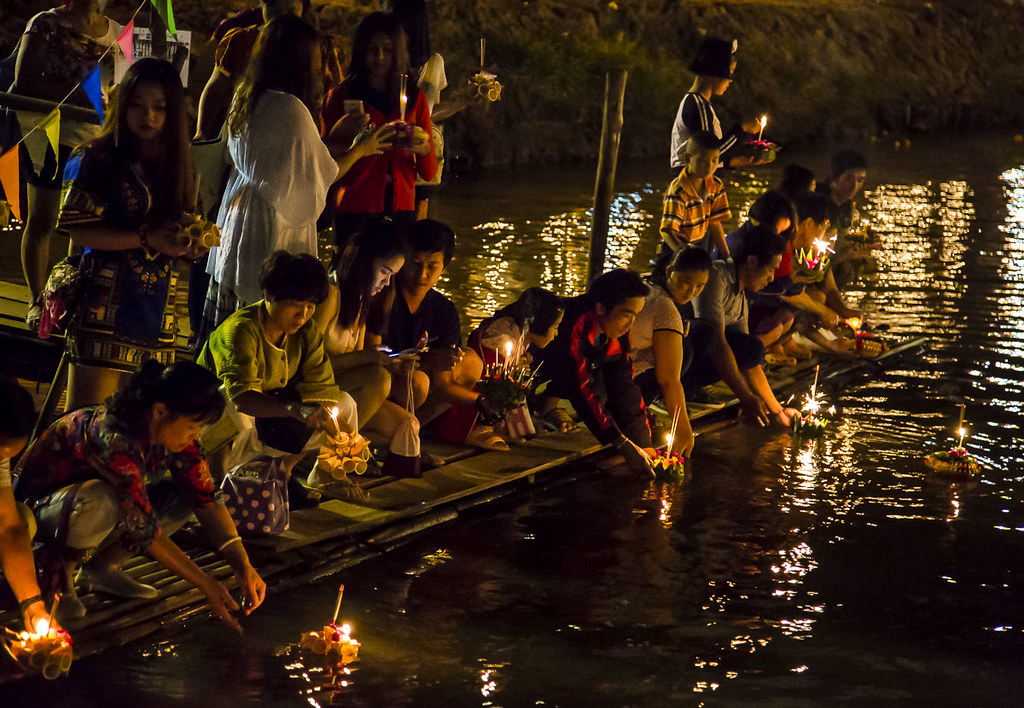
- December 5th: King Bhumibol Adulyadej’s Birthday Anniversary – also celebrated as Father’s day.
- December 10th: Constitution Day – marks the development of the first permanent constitution.
- December 31st: New Year’s Eve/Day – traditionally, Thai New Year is in April. But since 1940 it has officially been celebrated on Januaray 1st.
Useful Guides For Thailand
I am not affiliated with any of the below sites. They are just things that I have found helpful over the years.
For advice on getting trains around Thailand, this excellent site is my go-to guide. Really thorough and up to date, it tells you everything you need to know: https://www.seat61.com/Thailand.htm
For booking transport in advance, 12go is usually the best option. Most things can be dealt with online, but for things like train tickets they have an office by the Bangkok train station where you can collect them: https://12go.asia/en
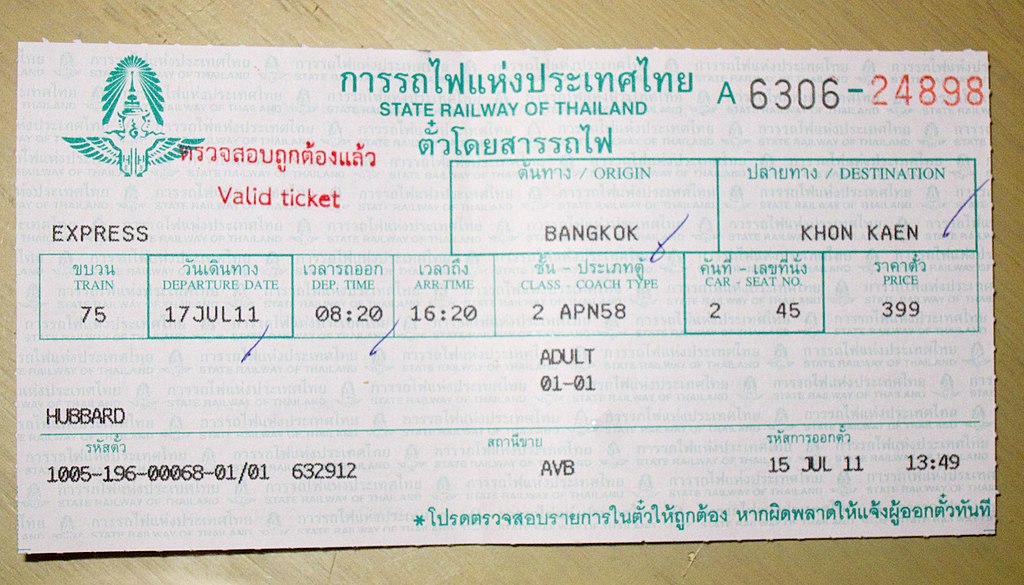
If you learn some Thai before you go, this will usually go down really well (especially when you get it a bit wrong; expect plenty of laughs!). Thaipod101 offer loads of free lessons on their youtube channel: https://www.youtube.com/user/ThaiPod101/
Using the BTS in Bangkok can be tricky to get the hang of, but this video really breaks everything down into easy to follow steps: https://youtu.be/7xU5RIyXe4U
One thing I really recommend to everyone is getting a Thai SIM card for your phone. WiFi is readily available in most hotels, bars, etc., but when you’re out and about it is so handy to be able to get online and find directions or recommendations. You can get them at the airport or in 7/11s. There are a variety of networks and plans to choose from, so this guide should come in handy: https://toomanyadapters.com/buying-sim-card-thailand/
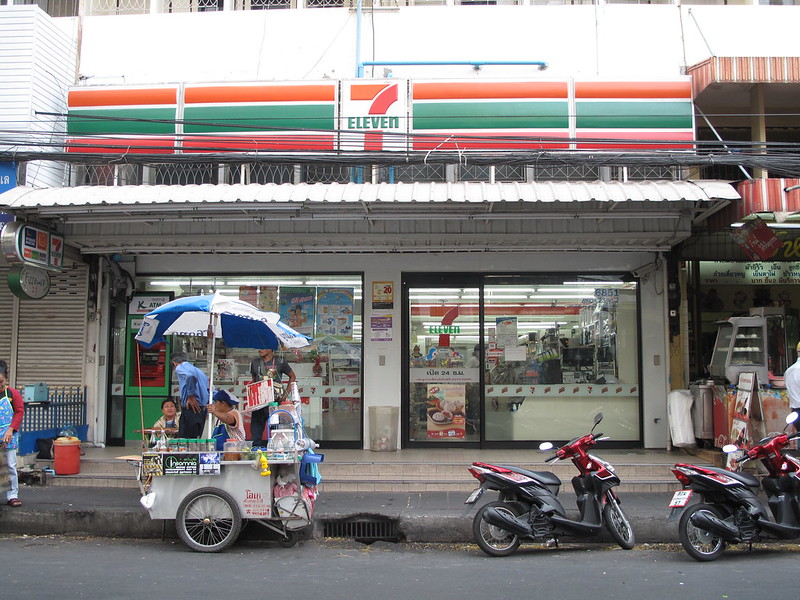
Thailand Highlights
There are so many amazing destinations in Thailand, choosing highlights isn’t easy. But here are a few places that, in my opinion, are absolute musts. Obviously there are no one size fits all suggestions, so in order to try and make this more useful, I have picked a recommendation to suit five types of traveller.
Adventurers:
Khao Sok National Park
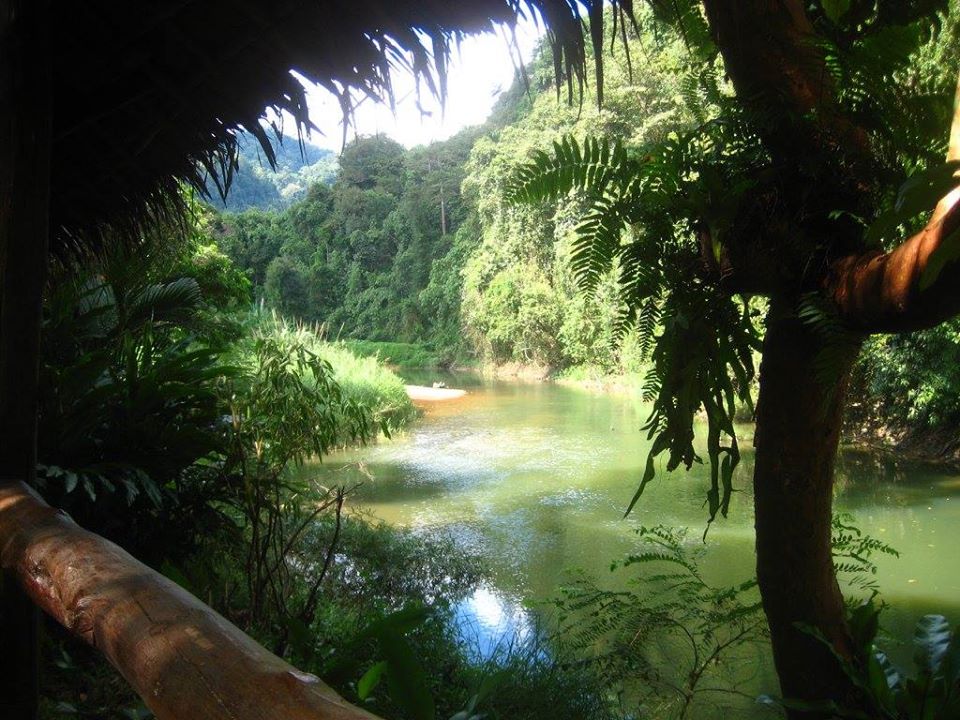
If you are looking for an adventure off the beaten path then I can not recommend Khao Sok enough. This 739 square km forest boasts breathtaking scenery and incredible wildlife.
Tourists have started to catch on to this amazing national park and, as such, there is now a growing number of places to stay, each offering a variety of tours, treks and activities. If you’re looking for an adventure in the rainforest then this would be my top pick for you.
Beach Lovers: Krabi
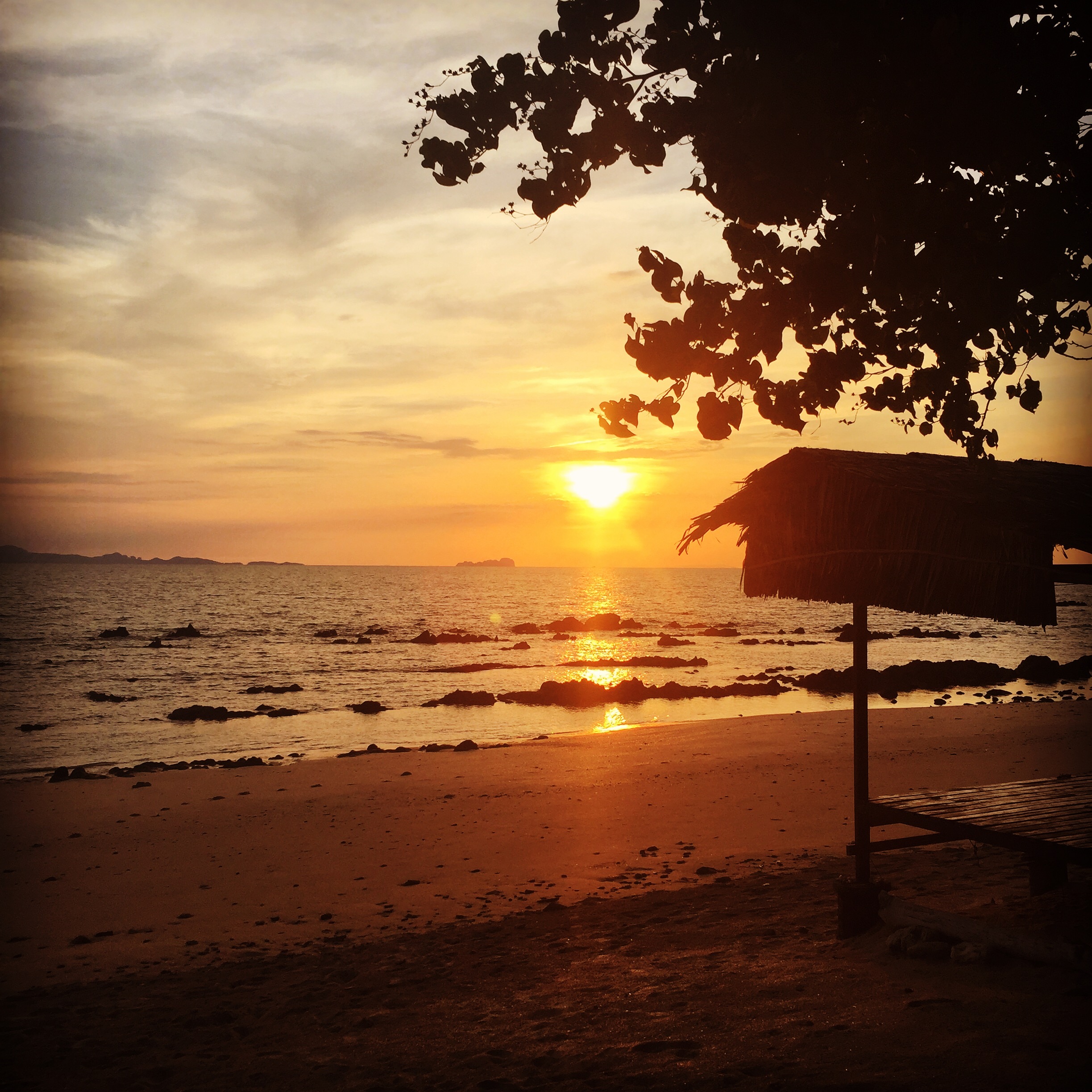
Those who love white sand beaches and beautiful sunsets are spoilt for choice in Thailand. The Krabi area gives you a great chance to do some island hopping. Beaches on Koh Phi Phi, Koh Lanta, Koh Jum, and Ao Nang are all incredible, and there are so many more. Krabi is a beach lovers dream. The only difficulty is deciding which amazing island to visit first!
Party Animals: Koh Phangan
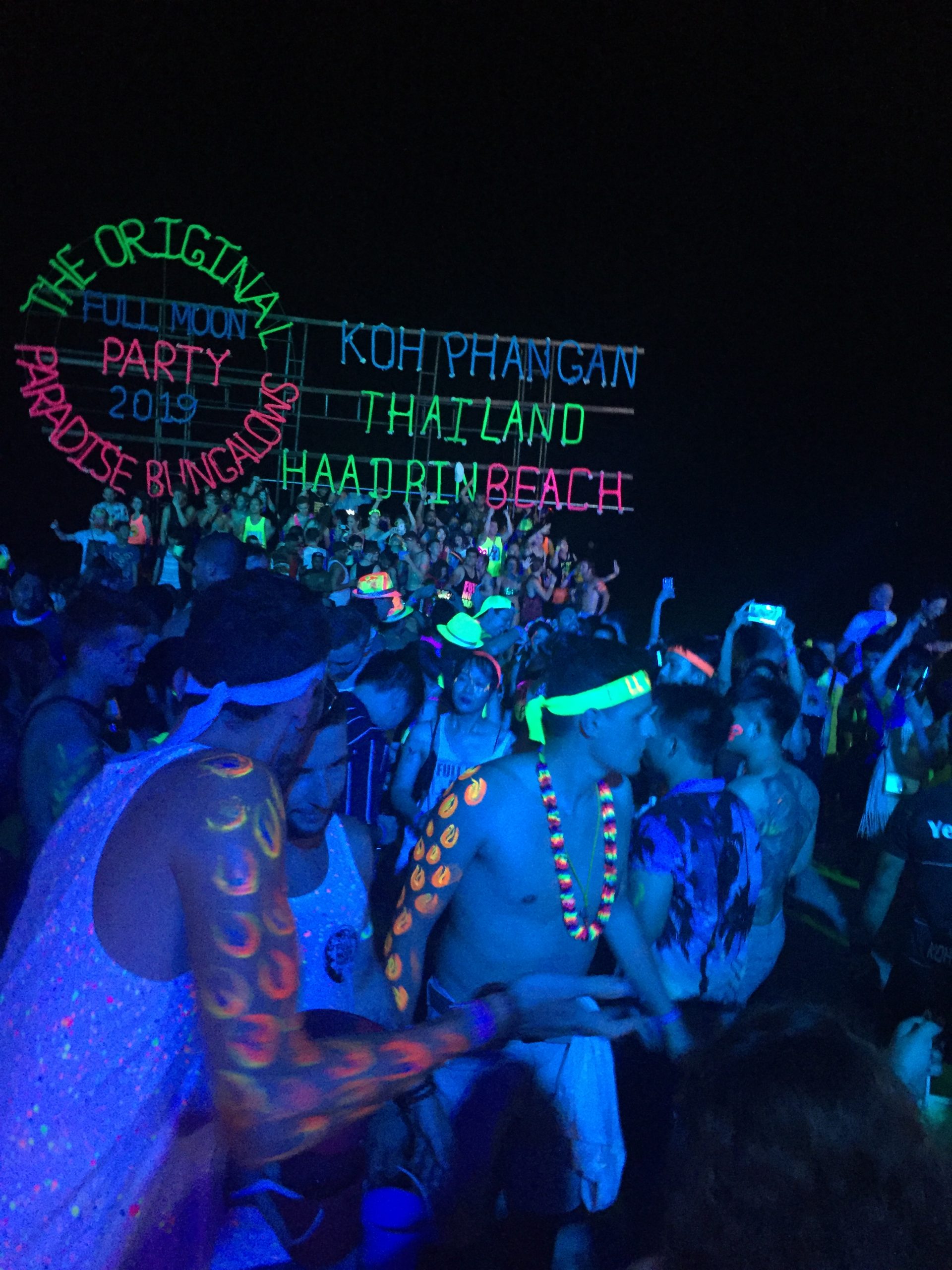
Bangkok has several areas where the parties go on late into the night, Chiang Mai has a more relaxed but equally fun vibe, and Patong in Phuket has long been party central in the south.
However, it’s impossible to overlook the Full Moon Party which takes place each month on Hat Rin beach, Koh Phangan. Expect all night partying, neon body paint and drinking dodgy booze from a bucket. Love it or hate it, there is nothing else quite like it.
Note: If all night beach parties are not your thing, don’t be put off Koh Phangan as there is so much more to this amazing island! It has some of the nicest, and quietest, beaches in Thailand.
Culture Vultures: Chiang Mai
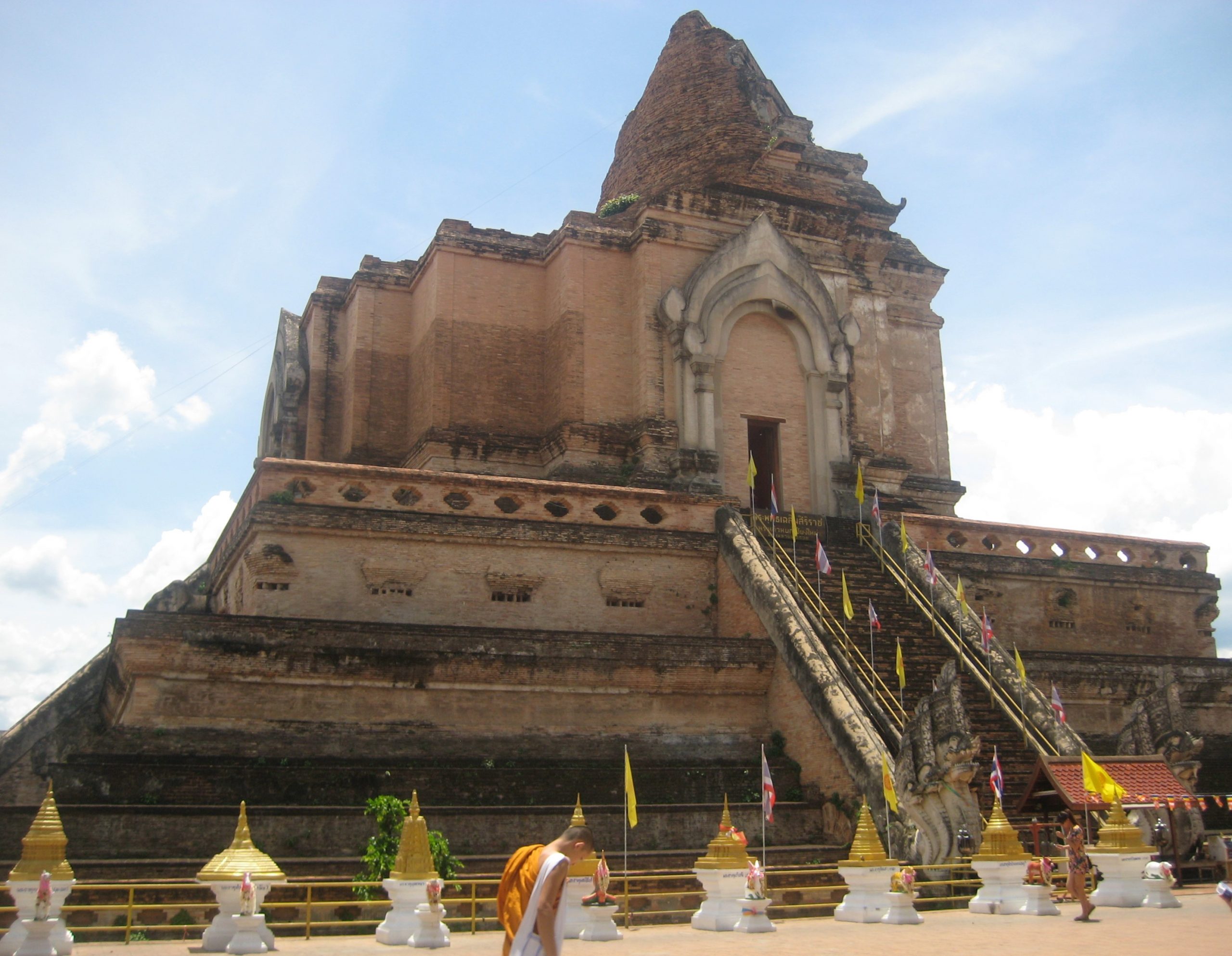
This was a toss up between Chiang Mai and Ayutthaya (Thailand’s capital from 1350 to 1767). Overall, Chiang Mai just pips it simply because it has so much else to offer on top of it’s amazing culture and history.
Surrounded by an ancient city wall, Chiang Mai boasts over 300 temples, various interesting museums and a thriving arts scene. You could spend days just exploring its historical and cultural offerings.
Foodies: Bangkok
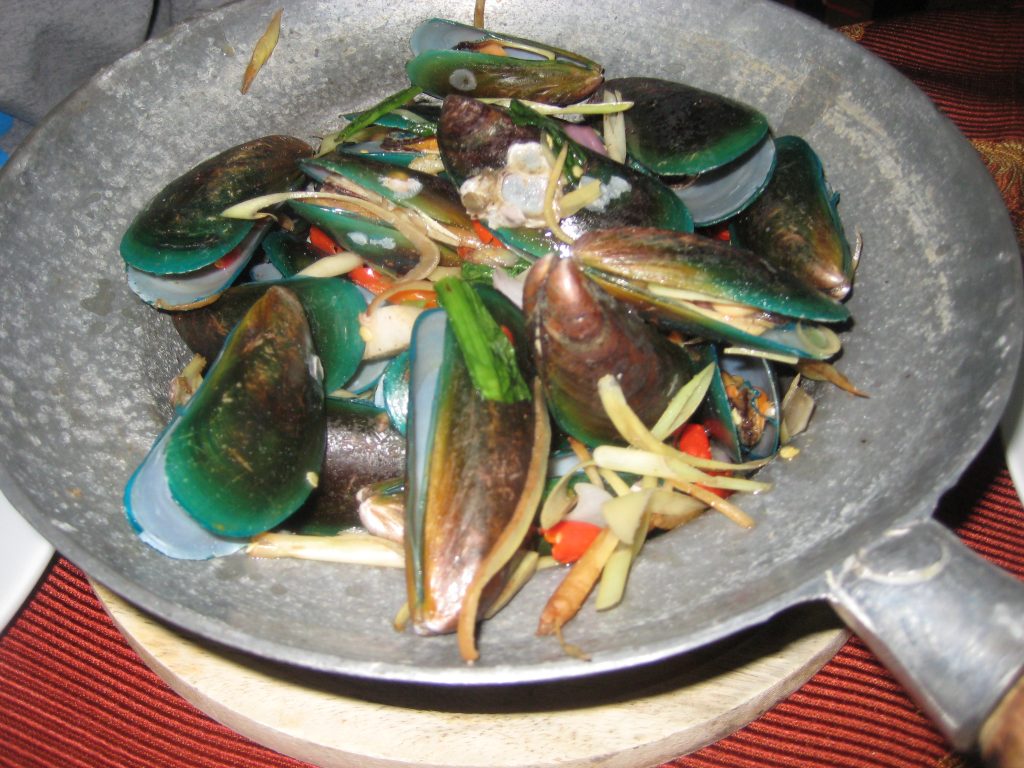
Yet again, it’s almost impossible to choose. Let’s face it, wherever you go in Thailand you will manage to find some delicious food. But overall, there is no beating Bangkok.
Whatever type of food you’re into, you’ll be spoilt for choice. From street stalls to gourmet restaurants and everything in between, Bangkok has it covered. As well as incredible Thai food, I’ve had amazing Indian food, Mexican, Japanese, burgers, pizzas, fusion tapas… you name it, somewhere in Bangkok there will be a restaurant that has perfected it.
